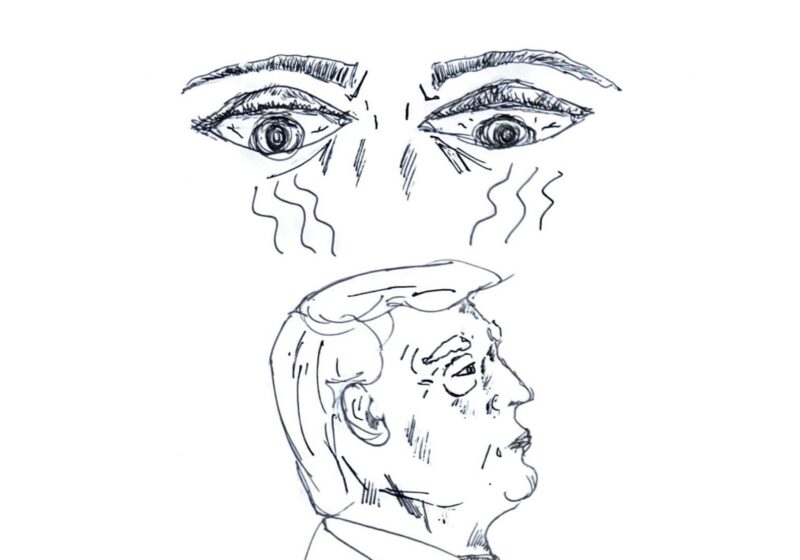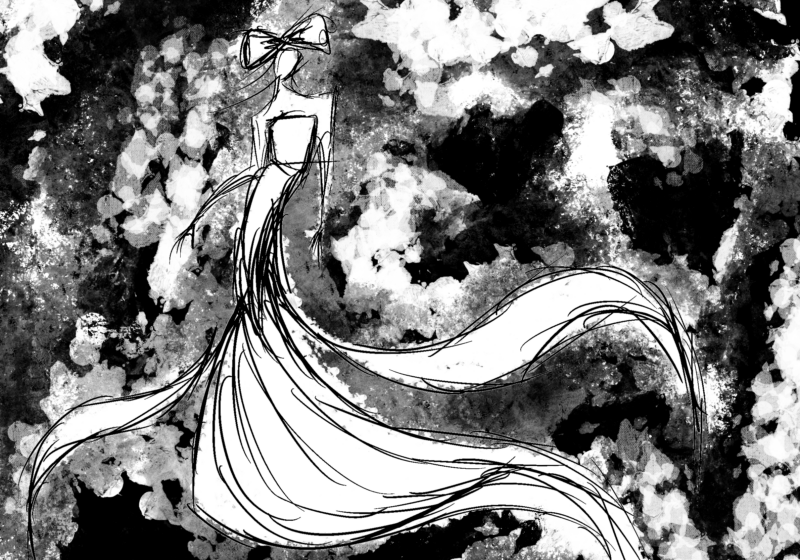On the evening of March 15, a friend from high school messaged me on Facebook.
“Justin.”
“Jake.”
“To Pimp a Butterfly.”
Suddenly, my plans to get to sleep early that night didn’t matter. I had been waiting for this moment for nearly two and a half years. The release of Kendrick Lamar’s follow-up to 2012’s “good kid, m.A.A.d city,” hip-hop’s last classic album, had come. “To Pimp a Butterfly” was here.
What ensued was an all-night affair: the download, the wait and, at last, the listen. And what a listen it was.
At first, I didn’t know how to react to this album. It was dense. It was layered. It was overwhelming. It was unlike anything I’d ever heard Lamar do before. I tried taking notes, tried reading along with the lyrics. But, at a certain point, I couldn’t keep up. I had to let the music take control. And with Kendrick behind the wheel, any doubts that I might’ve had about how he could top his last album were left crawling around on the pavement, dying in his tire tracks.
“To Pimp a Butterfly” is a grandiose exercise in music; while Kendrick is a rapper by trade—or a “writer,” as he calls himself—this album transcends typical hip-hop trends. “Butterfly” is a lush, seamless collage, taking cues from funk, soul and jazz, stirring them up into a sonic fusion all tied together by hip-hop. This isn’t to say that this type of thing hasn’t been done before; hip-hop has a history of being influenced by these genres. But this album completely eschews every recent sound in rap music: there are no glistening DJ Mustard hits, no club “bangers.” Instead, Kendrick offers us a soundscape reminiscent of an older age of music to complement his rhymes. Horns flare. Basslines bubble. Saxes, synths and snares pull together sounds ranging from G-funk to free jazz. “King Kunta” is a foot-tapping, head bobbing funk anthem; “The Blacker the Berry” features a brutal boom-bap beat; “Institutionalized” is a spacey, jazzy affair. Despite its classic influences, it still sounds fresh, mostly because of Kendrick’s elastic voice, various characters, insightful storytelling, provocative themes and arsenal of flows.
On this album, Kendrick’s capabilities as an emcee are unrivaled by his contemporaries. While he’s always been known as a top-tier rapper, he is at his artistic best on “Butterfly,” displaying his sharpest technical skills to date as well as a versatility unmatched by any popular rapper in recent memory.
“For Free?” finds K. Dot spitting like an auctioneer hyped up on amphetamines over a chaotic jazz orchestra, punctuating his rapid-fire, scatty rhymes with the ever-entertaining “this dick ain’t freee!” It’s hilarious and topical, moving from addressing relationship woes to invoking themes of commercial corruption and race.
On “u,” the counterpoint to the pre-released single about self-love “i,” we find Kendrick screaming, locked in a hotel room, crying out “loving you is complicated” before tearing himself apart. His voice is pained, cracking at times, and the self-hatred is even more palpable when coupled with the dark, bass-heavy instrumental. The song takes a turn for the worse with a beat change. We hear a maid knocking at Kendrick’s door as airy vocals creep in the background. The transition between the two halves, in which the beat cuts in and out and shifts from ear to ear, is unsettling, but nothing compared to Kendrick’s second-half delivery. Here, backed by melancholy horns, he sobs, his voice raw and wallowing. “You even Facetimed instead of a hospital visit…Then he died, God himself will say ‘you fucking failed,’” he weeps, blaming himself for neglecting his friends and family. And when he interrupts his tirade to take a gulp from a liquor bottle, the sounds of the liquid swishing and the glass clinking cutting into the beat, the song is all the more potent.
“Momma,” a song about returning home to find solace, sticks out as another example of his abilities. Laced with internal rhyme and enjambment, the song sees Kendrick taking on yet another inflection, sounding like a humbled teen. The coming-home vibe is furthered by the drums on this track, which, with their clangy, metallic feel, sound like a toddler banging on pots and pans in the kitchen.
“Butterfly” also features a host of heavy themes, primarily dealing with being black in America. Its method of in(tro)spection relies on framing issues faced by blacks, both in and outside of their communities, by looking at Kendrick himself. In his narrative of dealing with fame and its consequences, we’re able to gain insights on some of the most profound but overlooked issues of our time: hypocrisy in both governments and ghettos, institutionalized racism, police violence, gang violence and exploitation.
Kendrick’s black culture manifesto—his celebrations and condemnations—reveals itself in full on the album’s final track, “Mortal Man.” After comparing himself to legendary social leaders, the song ends, and Kendrick reads in full a spoken-word poem that had been delivered in bits throughout the album. Affixed to the end of almost every song on the album is Kendrick’s poem; with each song comes the addition of new lines, each foreshadowing the themes of the next. The poem tells the story of his transformation. It’s a unique element that helps bring an edge of cohesion to what is often a manic album.
What follows next is a conversation with none other than 2Pac. It sounds organic, and, given the relative obscurity of the source audio, I’m sure it panicked at least a few fans still holding out hope that Los Angeles’ finest might return from the grave.
Kendrick lays out his vision at the end of this conversation, sharing another poem with his idol. With an extended metaphor about the “caterpillar” and the “butterfly,” Kendrick explains his project’s title as well as its overarching message—of being blind, breaking free of the prison of circumstance, recognizing the greatness within us all and showing others the path to enlightenment. But when Kendrick asks 2Pac for his perspective, he’s answered only with silence. “Pac? Pac? Pac?!” he cries. It’s a powerful ending to an album that provokes more questions than it answers.
“To Pimp a Butterfly” is sweeping. It is sonically and thematically rich, revealing new ideas and details with each listen. While it has and certainly will continue to polarize fans, I have no doubt that this will go down as one of the most significant and visionary rap albums in history. In a word, it is a masterpiece.
Trombly is a member of the class of 2018.






